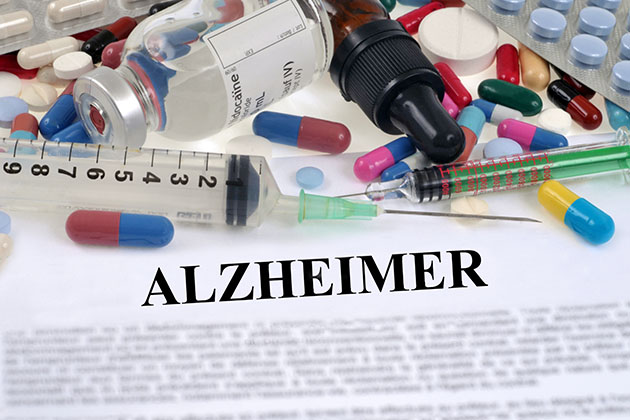Studie toont een nieuwe combinatietherapie van twee van planten afgeleide verbindingen om cognitieve stoornissen bij muizen om te keren
Er leven minstens 50 miljoen mensen met Ziekte van Alzheimer wereldwijd. Het totale aantal patiënten met de ziekte van Alzheimer zou tegen 152 de 2050 miljoen kunnen overschrijden. De eerste tekenen van cognitieve stoornissen bij patiënten met de ziekte van Alzheimer (AD) zijn geheugenproblemen en verminderde besluitvorming. Naarmate de ziekte vordert, ervaren patiënten aanzienlijk geheugenverlies en cognitieve problemen. Er is geen remedie voor de ziekte van Alzheimer en ook geen manier om de progressie hiervan te stoppen of te vertragen ziekte. Er zijn beperkte medicijnen en andere opties beschikbaar die enkele van de symptomen kunnen verlichten. Bij de ziekte van Alzheimer hopen amyloïde plaques zich op tussen neuronen in de hersenen van patiënten. Bij gezonde mensen eiwit fragments called amyloid beta protein are broken down and removed. But in case of Alzheimer, these fragments accumulate to form hard, insoluble amyloid plaques which contribute to impaired transmission of impulses across neurons and cause subsequent symptoms of Alzheimer ziekte.
In een studie gepubliceerd in Journal of Biological Chemistry, hebben onderzoekers aangetoond dat een combinatie therapie could reverse symptoms of Alzheimer’s disease in mice who were genetically predisposed to develop Alzheimer. Two promising plant-derived compounds were explored which have complimentary amyloidogenic properties, firstly EGCG (epigallocatechin-3-gallate) an important component of green tea and secondly FA (ferulic acid) which is present in tomatoes, rice, oats and carrots. Such natural dietary compounds are called ‘nutraceuticals’ – compounds which are well-tolerated natural supplements, have drug-like properties and could be simply incorporated into one’s diet.
Voor de analyse, 32 muizen met Alzheimer like symptoms were randomly assigned into four groups. Each group had equal number of males and females and also healthy mice. When mice were 12 months old, they were given either (a) EGCG and FA (b) EGCG or FA or (c) a placebo once daily for a period of 3 months. The dosage given was 30 mg per kg of body weight as this dose is well-tolerated by humans and can be consumed as portion of a healthy dietary supplement. Before and after this special diet administration, researchers conducted neuropsychological tests which can analyze thinking and memory and thus make assessments about the disease. One of the tests done for memory assessment was the ‘Y-shaped maze’ which can test a mouse’s spatial working memory analogous to a human finding a way out of a building. Mice with Alzheimer like symptoms cannot navigate such a maze with ease as compared to healthy counterparts.
After administration of special diet for three months, mice having Alzheimer like symptoms performed similar to healthy mice in learning and memory tests. This suggested that combination therapy of EGCG-FA reverses cognitive impairment in mice having Alzheimer like symptoms. Mice treated with combination of EGCG-FA exhibited reduced abundance of amyloid-beta proteins when compared with individual treatment of these compounds. The underlying mechanism could be the ability of these compounds to prevent amyloid precursor proteins from breaking down into smaller protein fragments – amyloid beta – which accumulate in an Alzheimer patient’s brain as plaques. EGCG and FA together reduced neuroinflammation and oxidative stress in the brain – both of which are important part of Alzheimer’s in humans. Research which is successful in mice may not translate in humans but such plant-derived substances or supplements offer significant promise towards Alzheimer’s therapeutics in humans.
Dit succesvolle onderzoek bij muizen kan de weg vrijmaken voor proeven bij mensen. Dergelijke van planten afgeleide stoffen of supplementen zijn veelbelovend voor de therapie van Alzheimer.
***
{U kunt de originele onderzoekspaper lezen door op de DOI-link hieronder in de lijst met geciteerde bron(nen) te klikken}
Bron (nen)
MoriT et al. 2019. Gecombineerde behandeling met de fenolen (−)-epigallocatechine-3-gallaat en ferulazuur verbetert de cognitie en vermindert de Alzheimer-achtige pathologie bij muizen. Journal of Biological Chemistry. 294 (8). http://dx.doi.org/10.1074/jbc.RA118.004280






































